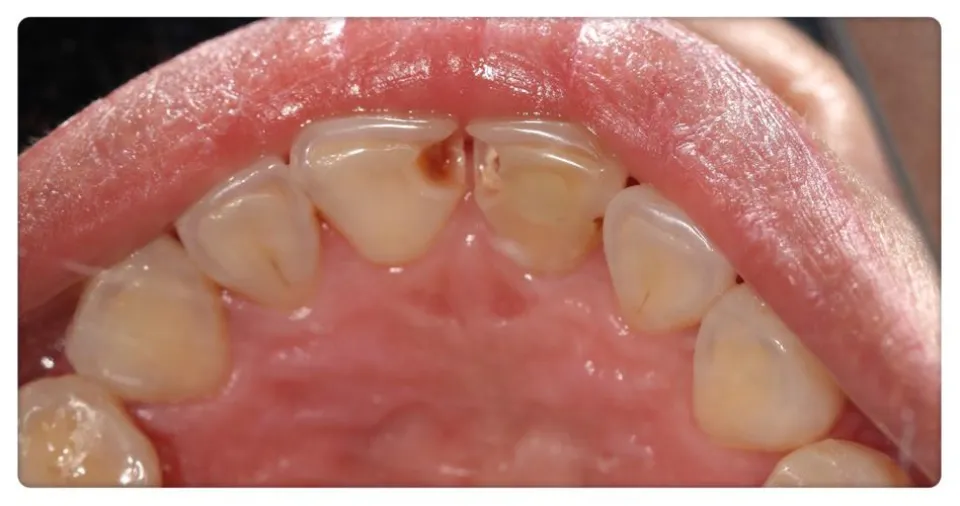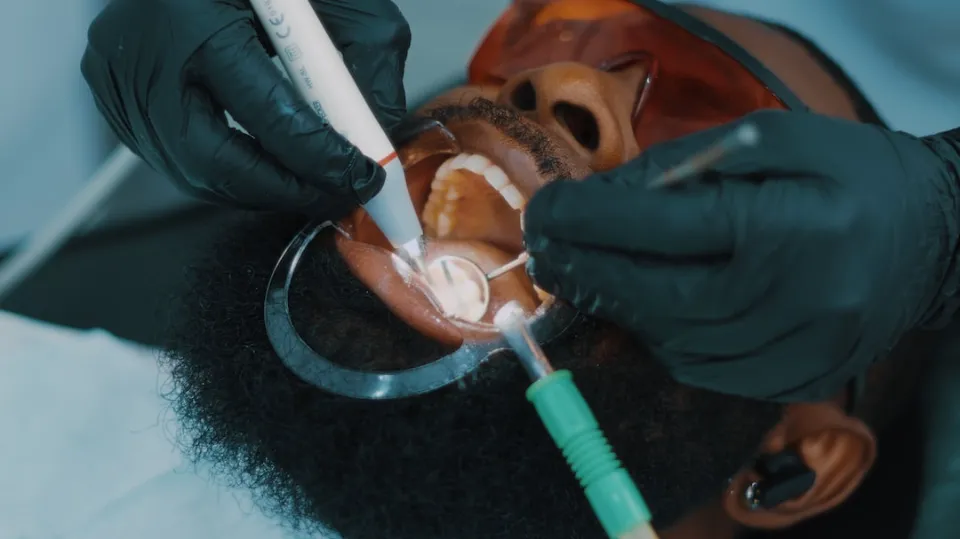
Holes in Teeth That Aren’t Cavities – Understanding Enamel Defects
Are the holes in teeth that aren’t cavities perplexing you? Possible causes include enamel flaws.
We explore the factors that contribute to non-cavity tooth holes in this article, as well as their treatments and preventative measures. You can maintain strong, healthy teeth by taking proactive measures if you are aware of these enamel flaws and how they affect your oral health.
Come along as we solve the puzzle of tooth holes that aren’t caused by cavities.
What Causes Holes in Teeth?
There are a few common causes for holes in teeth, including:
- Trauma
- Teeth grinding (bruxism)
- Cavities (decay)
However, the main cause of holes in teeth is tooth decay. A cavity is a small hole in the tooth that is present in its early stages. Without treatment, this cavity will grow bigger.
90% of adults between the ages of 20 and 64 have permanent teeth with dental caries, according to the Centers for Disease Control and Prevention.
Read More: How Common Are Cavities
Tooth Decay Overview

Acids produced by bacteria cause tooth decay, which is the breakdown of tooth structure. A soft, gooey film is produced by bacteria and food particles that are left over after improper brushing. It is called plaque.
Plaque accumulation can cause issues like gum disease and even tooth decay, which can result in holes in the teeth. For people of all ages, including kids, teens, and adults, tooth decay can be a problem.
How to Protect Tooth Enamel and Prevent Cavities
You need to prevent plaque from accumulating and staying in your mouth if you want to stop tooth decay. In order to do that, follow these tips:
- Avoid Sugary Foods
Those sugary and starchy foods and drinks are essentially the fuel that starts the fire when it comes to how cavities form. As long as you follow the other instructions in this manual, you don’t have to completely avoid them, but if you want to take care of your protective enamel, you must try to cut down on your intake.
- Brush Twice A Day
The best way to prevent tooth decay is to practice good oral hygiene. Make sure you brush twice daily for at least two minutes each time, and use fluoride toothpaste that has been approved by the American Dental Association. Following any type of sugary food or drink, you might also want to brush your teeth.

- Floss Once A Day
Even though thorough brushing can get most of the way there are still some areas of your mouth that a toothbrush cannot reach. can get between your teeth to remove cavity-causing plaque and prevent gum disease. Every single day, perform it once.
- Visit Your Dentist Regularly
If you really want to protect your mouth from tooth decay, you need to combine your at-home routine with regular visits to the dentist.
Every six months, you should have a routine dental cleaning and checkup to help prevent tooth decay as well as to identify any potential problems with your oral health before they become more serious.
- Rinse Often
You should at least take the time to rinse your mouth after eating sweets if you can’t resist them (it’s okay, you’re only human), so that the sugars don’t combine with the bacteria in your mouth to form plaque that causes decay.
- Use Fluoride Mouthwash
Your teeth are less likely to experience decay because fluoride helps to shield them from the acids found in plaque. If you want to take advantage of this, grab a fluoride mouthwash approved by the American Dental Association and incorporate it into your everyday activities.
Risk Factors for Tooth Decay

Although tooth decay is a risk for everyone, some people are more likely than others to develop cavities. These factors increase your chances of developing tooth decay:
Poor Diet
Too much exposure to sugary foods and beverages increases your risk of developing tooth decay.
When you eat or drink sugar-rich foods and beverages, plaque-forming bacteria convert the sugars into an acid that erodes the enamel of your teeth.
Lack of Fluoride
A lack of fluoride can accelerate tooth decay in addition to poor oral hygiene.
Even early tooth decay can be stopped or reversed by fluoride. By bolstering tooth enamel and making teeth more resistant to the acids produced by plaque, it aids in tooth protection by preventing tooth decay.
Age
Children have a higher risk of tooth decay than adults do, according to the American Dental Association (ADA). Additionally, older adults have worn-down teeth and receding gums, which raises their risk of tooth decay.
Dry Mouth
Saliva aids in keeping your mouth clean by washing away bacteria. Plaque buildup on teeth is more difficult to remove if not enough saliva is produced. This raises the possibility of tooth decay.
Medication side effects, specific medical conditions, or merely not drinking enough water can all contribute to dry mouth.
Summary
Like any other part of the body, dental health is crucial. Make sure to get routine dental checkups to avoid developing holes in your teeth that aren’t cavities. In addition to maintaining good dental hygiene, consuming less sugar and acidic food will be very beneficial.
One of the common health issues is tooth decay. If they are not treated, though, they can result in serious health problems. It’s crucial to visit your dentist frequently and to heed their recommendations for both prevention and treatment.





Average Rating